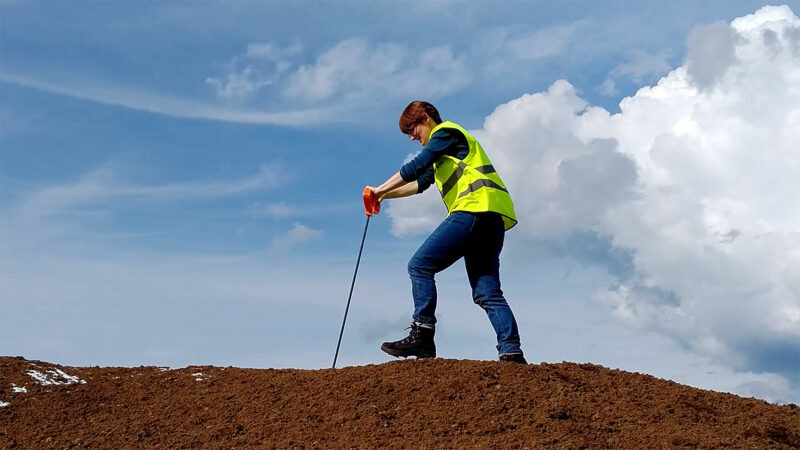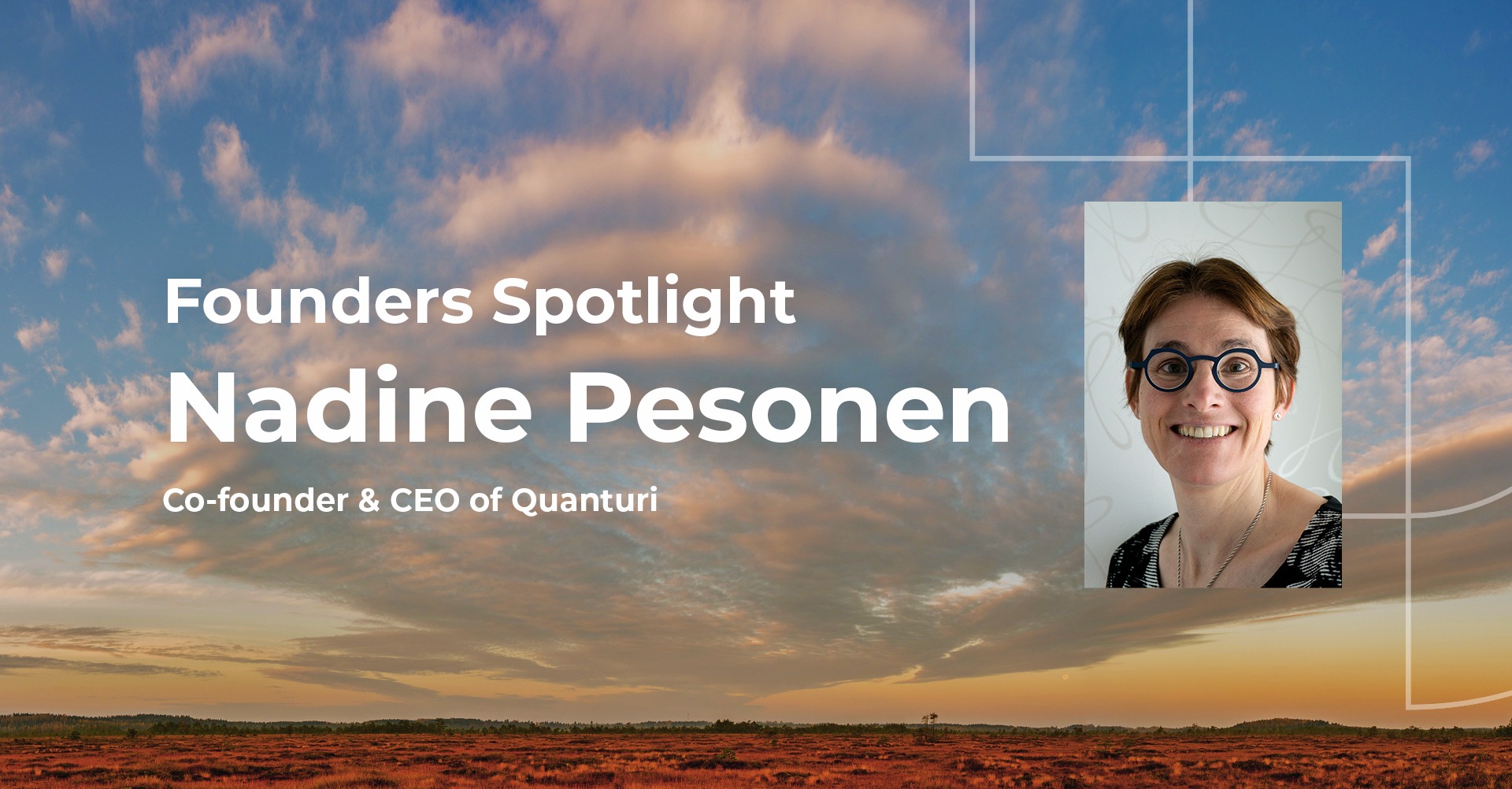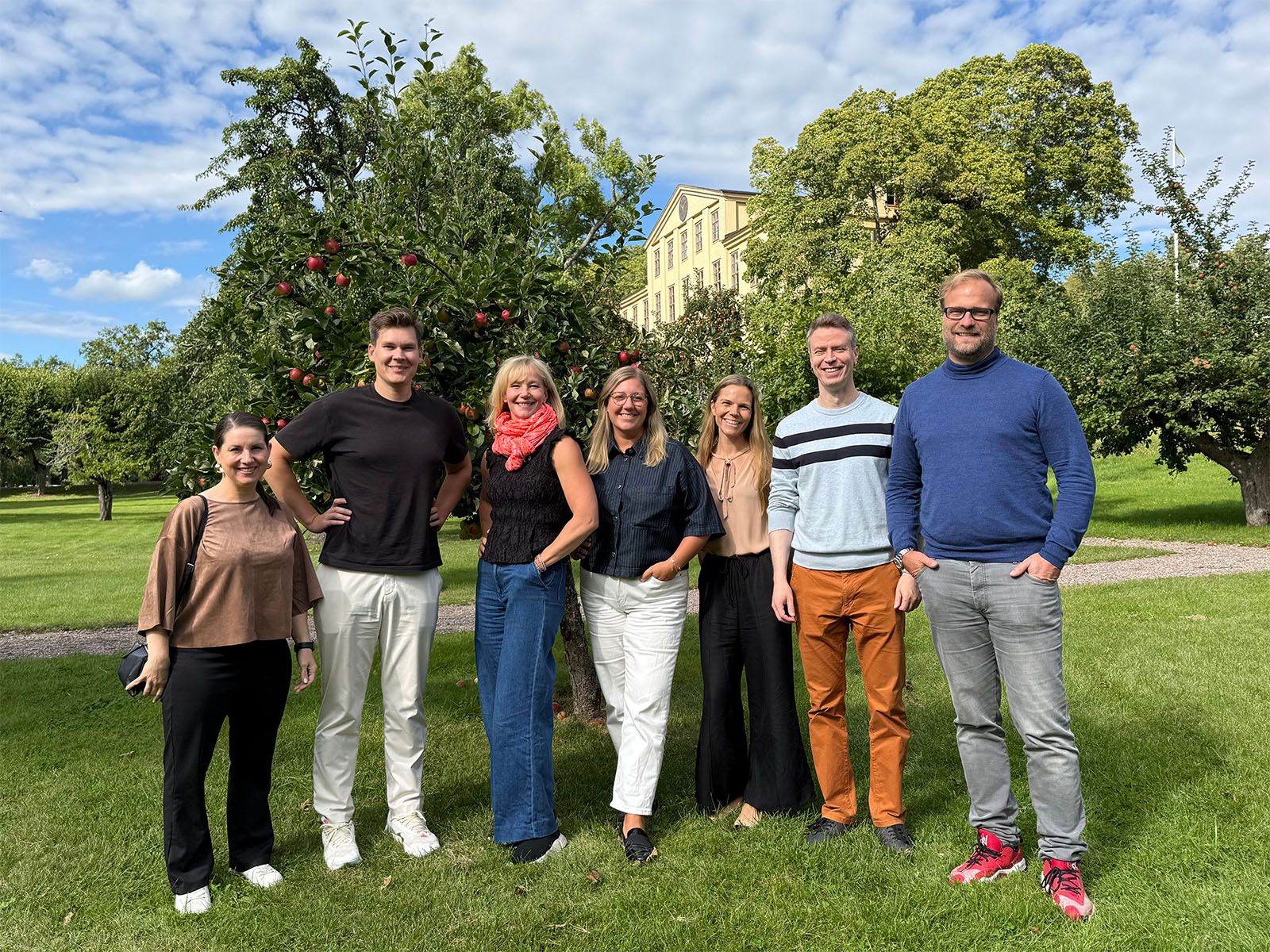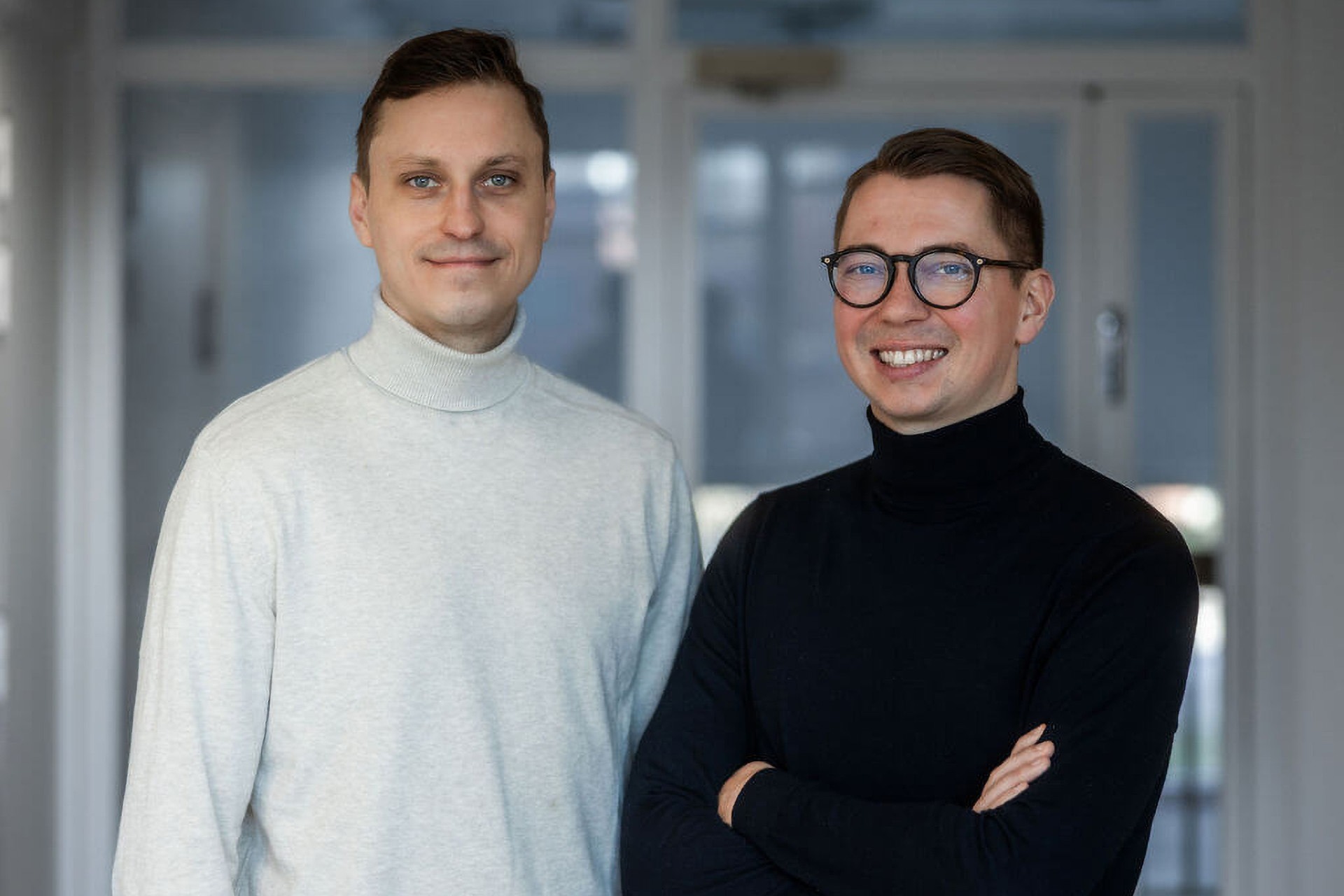The Founders Spotlight blog series uncovers the stories of Voima Ventures’ portfolio founders. This time we talked with Nadine Pesonen – the co-founder and CEO of Quanturi.
Let’s begin by getting to know you. Can you share a bit about your background?
I’m French, but I’ve been living in Finland for the last 20 years or so. I started my studies in France with electrical engineering before moving to the United States. There, I graduated from my PhD while working for NIST (National Institute of Standards and Technology). During my PhD studies I also enrolled into a masters in engineering management program as I felt I was missing the managerial knowledge. Later on, this has helped me a lot in leading people and the company.
I met my to-be husband during my time in the US and after graduating I moved to Finland in 2002. I was hired by VTT to the Sensing Group. I worked for VTT for 14 years on wireless technologies as project leader, senior researcher and was really involved in acquiring funding especially from the private sector.
Why Agritech and how did you get the idea for Quanturi?
Farming has always been part of my life as I grew up on a farm. Still today my parents and my brother are farmers. For me it was a no brainer to go into Agritech as it was such a familiar context and literally combines two important things for me: agriculture and technology.
The idea first formed during a conversation with my brother. We were discussing how the agricultural industry uses technology and what is still missing. It is really intriguing to realize that agriculture has historically been one of the first to adopt high level technologies like GPS. Nevertheless, my brother was telling me how he still uses a manual thermometer similar to what you would be using for cooking the christmas ham to monitor the temperature of his haystack. This is something that needs to be done in order to prevent hay fires that originate from hay fermentation. Hay fires can destroy the whole hay stock and even the entire farm. Hay fires cause major losses to a farmer. When my brother took over our family farm, it actually burned down because of this, and I’m sure that it has a lot to do with why I have always been passionate about solving this problem.

Pesonen field testing with an early prototype of a compost temperature probe.
What was the thing that eventually made you decide to start your own company?
I’m not even sure if I ever made a conscious decision about it. I have always liked risk and I guess it just came naturally to start a company. Now when I think back I’m kind of bewildered with how little I actually thought about it. I have always been more of a product person than a researcher so I knew I had to find my way eventually.
Then again one thing that I would want to say to everyone who is thinking about starting a company is to just try it out. Go for it. Don’t start counting too much. The time is never going to be right and if you list down all the risks you will never do it.
When I started, someone told me that when you sell your first product you will be crying. And I was. It was so grande feeling to know that me and my co-founder Teppo were not the only ones believing in the product. We had done so much work to make it happen and it still makes me happy to think that we have developed a product that people are buying and that is bringing value to them.
It’s the same with our employees. For me it’s important to have a team that believes in the company and I’m happy to get to work with such talented people. When I think that altogether we have grown to provide jobs for around 20 people it makes me proud and happy. We are giving back to society and it’s empowering to know that.
Is there something you would like to share with aspiring founders?
A piece of advice that I really would like to give to anyone – especially from VTT or universities / research backgrounds – is to get mentors. Find people who are professionals in the business and who will be “kicking your ass” to get things forward. This type of network or dedicated person who understands the business prevents you from making some of the common mistakes. That also puts you on a road to a business-oriented thinking.
With research backgrounds we tend to just think that it would be nice to do this and do that, but the business mindset makes you execute it with focus. When you leave VTT or any institution you really are on your own and might not really know anything about selling or getting your product out there. Having this kind of mentor is a key thing.





